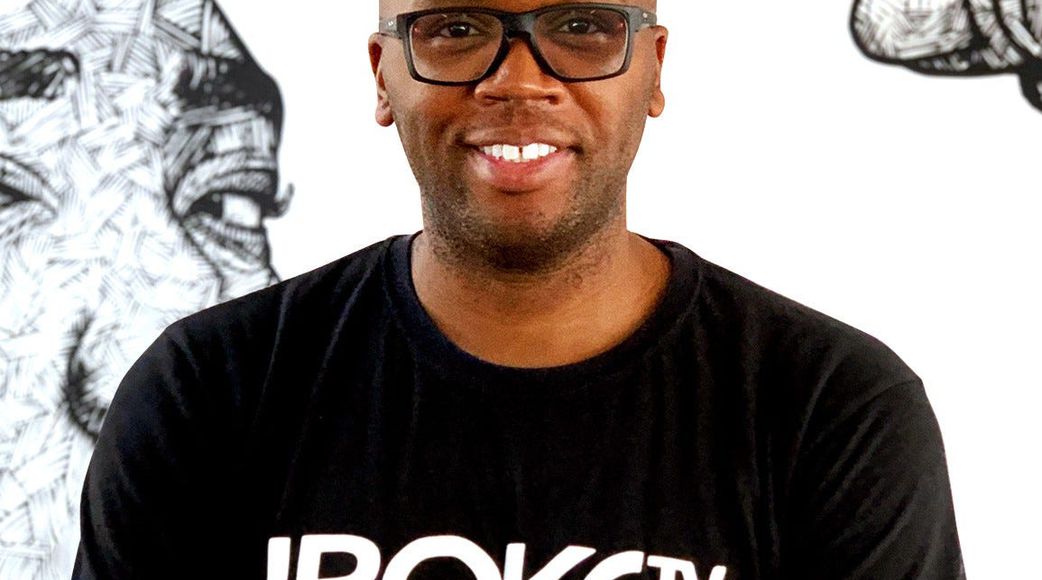CELEBRITIES

JASON NJOKU REFLECTS: ‘STREAMING WASN’T THE IDEAL MODEL FOR NOLLYWOOD’ AFTER IROKOTV’S $100M GAMBLE
Inside IrokoTV’s $100M Pivot: Jason Njoku on missteps, market collapse, and moving on
Jason Njoku, co-founder and CEO of IrokoTV, has offered a rare and brutally honest look into the trials, miscalculations, and eventual retreat of his once-ambitious streaming venture in Nigeria.
In a candid essay published online, Njoku called the company’s $100 million investment in Nigeria’s digital entertainment space a “costly mistake,” citing a combination of economic instability, flawed assumptions about the market, and stiff global competition.
Founded in 2011, IrokoTV launched as a pioneering platform for Nollywood content, often hailed as the "Netflix of Africa."
By 2015, it had formally entered the Nigerian market with high hopes and deep pockets, backed by $35 million in venture capital. But as Njoku now admits, the company spent its first decade operating in what he described as “full survival mode.”
“Between the revenues we generated and the venture capital we raised ($35 million) over the first ten years, we easily spent $100 million trying to win,” he said.
“But we weren’t winning; we weren’t losing either. We were just there, in full survival mode, operating in the toughest conditions possible.”
)
A harsh environment for streaming
IrokoTV’s challenges were emblematic of a wider struggle faced by many tech ventures trying to scale in Nigeria. The country’s volatile currency, inconsistent broadband infrastructure, low willingness to pay for digital content, and macroeconomic shocks, including multiple recessions and soaring inflation, made building a subscription-driven platform extremely difficult.
Njoku revealed that, over the years, the team poured resources into marketing, content acquisition, and tech development, all while trying to keep up with heavyweight rivals like Netflix, Amazon Prime Video, Showmax, and regional player Iflix.
“The local market in Nigeria simply collapsed. We saw it and stubbornly decided to keep investing and doubling down until we were all tapped out, having burnt through most of the post-exit capital.”
In 2023, after years of diminishing returns, the company finally accepted the writing on the wall.
“In 2023, we finally accepted there was no market for paid premium services and exited Nigeria.
We haven’t processed any Naira payments there in almost two years,” he continued.
Streaming wasn’t the answer — Content was
The irony, Njoku notes, is that while the streaming model failed to deliver, the company’s content production and licensing arm, ROK Studios, found solid footing and became the real engine of value. ROK created and syndicated original Nollywood content for television networks across Africa and beyond, including deals with DSTV and Canal+.
“In hindsight, streaming wasn’t the winning model for Nollywood in Nigeria. Content, channels, and distribution were,” he said.
According to Njoku, if the business had leaned earlier into content creation and distribution, and away from direct-to-consumer subscriptions, IrokoTV could have avoided years of losses. In fact, by 2018, the platform was bleeding nearly $5 million annually, a burn rate he now believes was unsustainable and unnecessary.
“With the economics that business had in 2018, we could have shut down iROKOtv and its $5 million/year in losses and either listed it or just had a fantastically profitable business.”
)
Hard-earned lessons for African founders
Njoku has become vocal in urging African entrepreneurs to take a leaner, more strategic approach to capital deployment, particularly in markets as complex and unpredictable as Nigeria. He emphasised that throwing money at a broken model won’t fix it, and can deepen the failure.
“It’s okay that we tried and failed. It’s okay that we accept the limitations in the domestic market we find ourselves in. Did it need $ 1 B+ to figure this out? Absolutely not.”
“I believe, with my newfound knowledge, that iROKOtv could have reached the same conclusions with $5-10 million versus the $100 million+ we ended up investing.”
“My lessons were expensive, and that’s why I am so consistent in telling founders not to over-raise,” he added.
A legacy of experimentation
Despite the financial misfire, IrokoTV remains a defining player in the evolution of African digital media. It helped bring global attention to Nollywood and proved that African content had both domestic and international appeal.
Now, with a sharper focus on sustainable content production and syndication through ROK Studios, Njoku is steering the business in a direction that aligns more closely with the realities of African media consumption.
The bold vision behind IrokoTV may have been ahead of its time, or simply misaligned with the local economic realities, but its story offers valuable insights for every founder attempting to navigate Africa’s still-maturing digital economy.
"This represents a significant development in our ongoing coverage of current events."— Editorial Board









